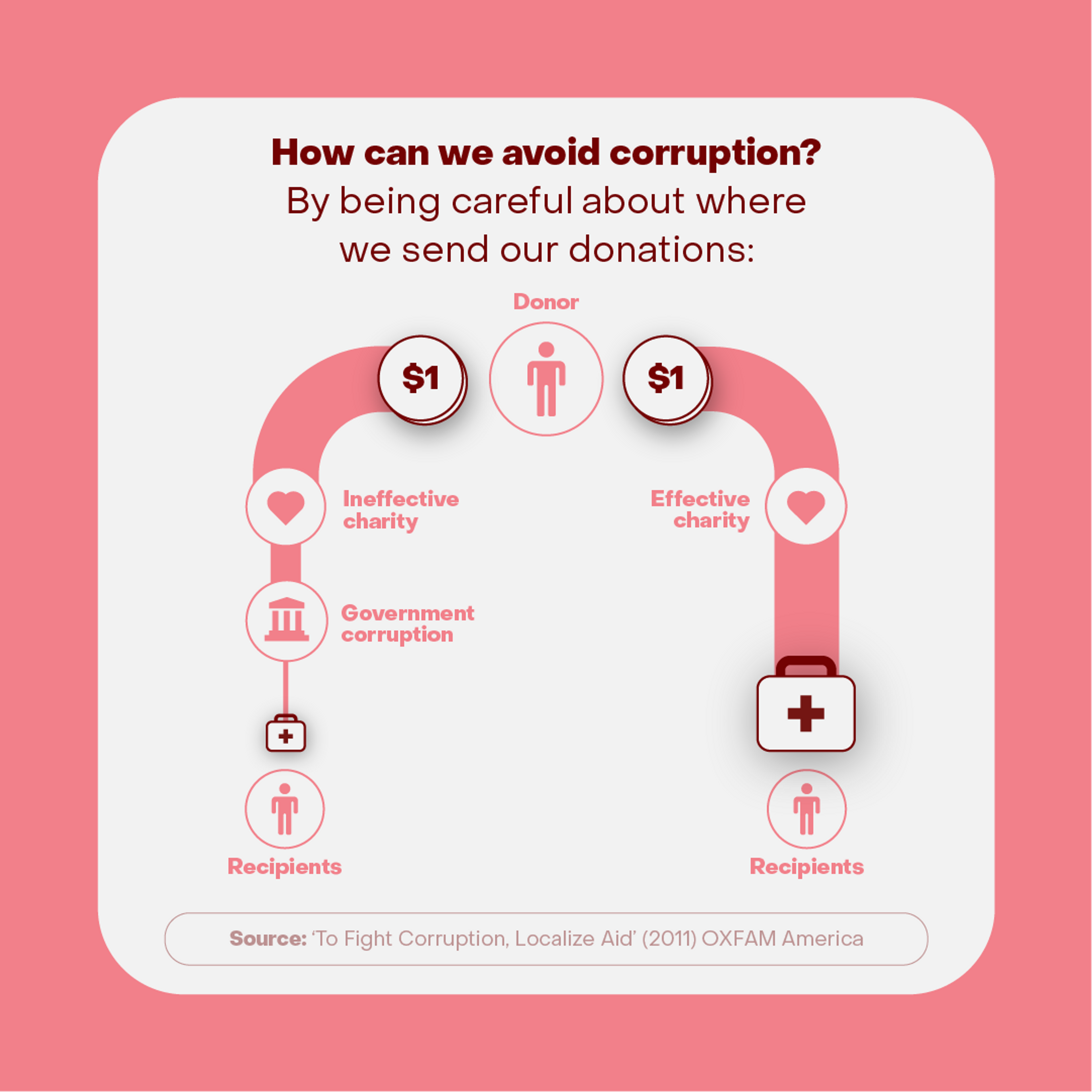Does corruption in recipient governments interfere with foreign aid?
This article is part of a series addressing common concerns about charitable giving.
Does corruption in recipient governments interfere with foreign aid?
A common criticism of giving aid to low-income countries is that the money gets siphoned off by corrupt local officials before it can do any good. Indeed, corruption is a big problem in many countries, and it can sometimes lead to aid money being diverted from its intended purpose. However, by donating through reliable and effective charities, it is possible to make a big difference through charitable giving, even in areas where corruption is widespread.
No one can deny that corruption has sometimes prevented aid money from achieving its intended goal. But the solution is not giving less, but giving "smarter."

One way to reduce the danger of corruption is to donate to programs which do not deal in valuable goods which officials could divert. Another is to give to charities that reliably monitor the impact of their programs, ensuring that their work is actually improving lives, rather than lining a few pockets. For example, the Against Malaria Foundation (AMF) is particularly careful to avoid and discourage corruption while carrying out its distributions. You can learn more about AMF and similarly reliable charities through charity evaluators like GiveWell.
Even many governmental aid programs, which have historically attracted significant criticism for corruption and fraud, now have measures in place to ensure that aid money goes where it is most needed. Done right, foreign aid can actually be used to encourage local institutions to become less corrupt and serve their communities more effectively. Instead of pressuring governments to cut foreign aid spending, we should pressure them to be more transparent about their activities and impact, so that funds are directed to the most effective programs.
By giving to effective charities, we can make a positive impact in low- and middle-income countries.
This post is part of our Common Concerns About Donating to Charity page. Multiple authors contributed.
View this post on Instagram